The International Centre of Insect Physiology and Ecology is an international scientific research institute, headquartered in Nairobi, Kenya that works towards improving lives and livelihoods of people in Africa.
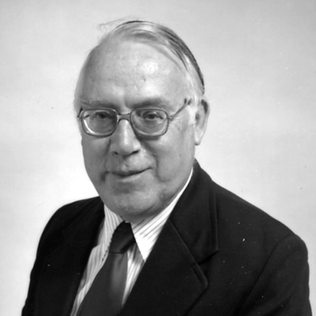
Jeffrey Barry Harborne FRS was a British chemist who specialised in phytochemistry. He was Professor of Botany at the University of Reading, 1976–93, then Professor emeritus. He contributed to more than 40 books and 270 research papers and was a pioneer in ecological biochemistry, particularly in the complex chemical interactions between plants, microbes and insects.
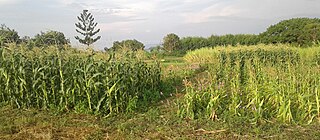
Push–pull technology is an intercropping strategy for controlling agricultural pests by using repellent "push" plants and trap "pull" plants. For example, cereal crops like maize or sorghum are often infested by stem borers. Grasses planted around the perimeter of the crop attract and trap the pests, whereas other plants, like Desmodium, planted between the rows of maize, repel the pests and control the parasitic plant Striga. Push–pull technology was developed at the International Centre of Insect Physiology and Ecology (ICIPE) in Kenya in collaboration with Rothamsted Research, UK. and national partners. This technology has been taught to smallholder farmers through collaborations with universities, NGOs and national research organizations.
Professor Thomas Risley Odhiambo was a Kenyan entomologist and environmental activist who directed research and scientific development in Africa.
Bor Shium Luh was a Chinese-born American food scientist who was known was for his research in fruit and vegetable products and in developing food science and technology in Asia, Latin America, and the Middle East. He was a noted researcher on the topic of rice research and development.

Karl Maramorosch was an Austrian-born American virologist, entomologist, and plant pathologist. A centenarian and polyglot, he conducted research on viruses, mycoplasmas, rickettsiae, and other micro-organisms; and their transmission to plants through insect vectors in many parts of the world. He is the co-author of a textbook on techniques in virology and is the author of numerous papers on the biology and ecology of plant viruses, their hosts, and vectors. He received the Wolf Prize in Agriculture in 1980 for his contribution to the study of crop pathogens.
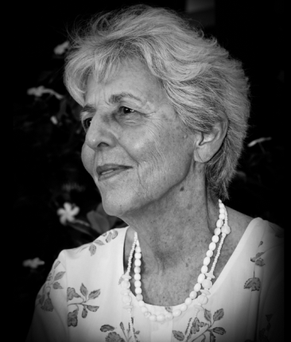
Olga Francesca Linares was a Panamanian–American academic anthropologist and archaeologist, and senior staff scientist (emerita) at the Smithsonian Tropical Research Institute (STRI) in Panama, who supported much of her research throughout her career. She is well known for her work on the cultural ecology of Panama, and more recently in the Casamance region of Southern Senegal. She is also concerned with the social organization of agrarian systems as well as the relationship between "ecology, political economy, migration and the changing dynamics of food production among rural peoples living in tropical regions".
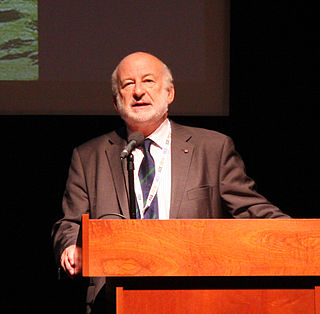
John Anthony Pickett is a British chemist who is noted for his work on insect pheromones. Pickett is Professor of Biological Chemistry in the School of Chemistry at Cardiff University. He previously served as the Michael Elliott Distinguished Research Fellow at Rothamsted Research.
Dr. Aldas Janaiah is an Indian senior scientist and economist who did extensive research on socio-economic and policy issues related to technological developments, adoption and its impacts in South Asia and SE Asia.

Nagendra Kumar Singh is an Indian agricultural scientist. He is presently a National Professor Dr. B.P. Pal Chair and JC Bose National Fellow at ICAR-National Institute for Plant Biotechnology, Indian Agricultural Research Institute, New Delhi. He was born in a small village Rajapur in the Mau District of Uttar Pradesh, India. He is known for his research in the area of plant genomics, genetics, molecular breeding and biotechnology, particularly for his contribution in the decoding of rice, tomato, wheat, pigeon pea, jute and mango genomes and understanding of wheat seed storage proteins and their effect on wheat quality. He has made significant advances in comparative analysis of rice and wheat genomes and mapping of genes for yield, salt tolerance and basmati quality traits in rice. He is one of the highest cited agricultural scientists from India for the last five years.
Zerubabel Mijumbi Nyiira is a Ugandan agriculturalist and politician. He served in the Cabinet of Uganda as State Minister of Agriculture from 27 May 2011 to 1 March 2015 and State Minister of Fisheries from 1 March 2015 to 6 June 2016. Zerubabel Nyiira is also the elected Member of Parliament for Buruuli County, Masindi District.

Hans Rudolf Herren is a Swiss American entomologist, farmer and development specialist. He was the first Swiss to receive the 1995 World Food Prize and the 2013 Right Livelihood Award for leading a major biological pest management campaign in Africa, successfully fighting the cassava mealybug and averting a major food crisis that could have claimed an estimated 20 million lives.
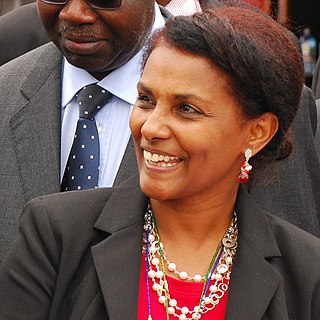
Segenet Kelemu is an Ethiopian scientist, noted for her research as a molecular plant pathologist, and outstanding scientific leadership. For close to three decades, Segenet and her team's research has contributed to addressing agricultural constraints in Africa, Asia, Latin America and North America.

Swapan Kumar Datta is a (Professor) of rice biotechnology who focuses on genetic engineering of Indica rice. Datta has demonstrated the development of genetically engineered Indica rice from protoplast derived from haploid embryogenic cell suspension culture. Golden Indica Rice with enriched Provitamin A and Ferritin rice with high iron content were developed by his group with a vision to meet the challenges of malnutrition in developing countries. Datta has been named as one among the top 25 Indian scientists from all fields of science by India Today.
Christina Grozinger is an American entomologist, the Publius Vergilius Maro Professor of Entomology at Pennsylvania State University and the director at its Center for Pollinator Research.
Ann E. Hajek is an American entomologist with a focus in insect-microbe interactions. She was a professor of entomology at Cornell University from 1994 to 2024.
John Norton Thompson is an American evolutionary biologist. He is Jean H. Langeheim Professor of Plant Ecology and Evolution at the University of California, Santa Cruz.
Baldwyn Torto is a Ghanaian scientist. He is a chemical ecologist, and a principal scientist at the International Centre of Insect Physiology and Ecology (ICIPE). He also doubles as an extraordinary professor and the head of Behavioural and Chemical Ecology Unit, Department of Zoology and Entomology at the University of Pretoria, South Africa. He is a fellow of the Entomological Society of America, a fellow of the African Academy of Sciences, and a member of the American Chemical Society.
Anthony Youdeowei is a Nigerian professor of Agricultural Entomology. He was acting vice chancellor, dean and executive chairman at the University of Ibadan Publishing House. He is a founding fellow of the African Academy of Sciences and The World Academy of Sciences.

Gelia Tagumpay Castillo was a Filipino sociologist. She specialized in rural sociology and was a pioneer of the concept of participatory development. She was a university professor at the University of the Philippines Los Baños. Her 1977 book Beyond Manila examined rural development in the Philippines. She was named a National Scientist of the Philippines in 1999.









